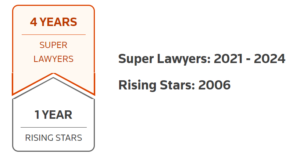“How much will my divorce cost?”
I hear this question in about 2/3 of my initial family law consultations. The truthful answer is that your family law attorney really doesn’t know the extent of the final cost of your divorce. The reason is that, except in truly uncontested matters, you and your lawyer control only 1/2 of the transaction. What legal and/or factual issues become contested, how aggressively the case is litigated, and the complexity of those issues, will influence overall cost. And, the client’s perceived capability to predict those variables n a contentious family law case does not always prove to be accurate.
The lawyer’s hourly rate for his or her services, and the hourly rate for associate attorneys or paralegal services also effects the overall cost of your divorce.
Family Law Attorney hourly rates differ from lawyer to lawyer, as they should. The lawyer’s experience, skill, reputation in the community and the complexity of the case are factors in determining what hourly rate to charge.
The old adage “you get what you pay for” is a good rule of thumb when reviewing your lawyer’s hourly rate quote; but its application to real life applies, in my opinion, in the form of a bell curve. In other words, the most expensive divorce attorney is not necessarily the best divorce attorney. On the other hand, cheap lawyers are usually cheap for a reason. In fact, a lawyer with a low hourly rate could wind up being more expensive in the end because a correlating lack of experience may require them to expend many more hours on a task than a more seasoned lawyer would expend on a similar task.
Common sense is your best ally in deciding who to hire when considering cost. If the retainer or quote sound too good to be true, then your instincts are probably right. If the hourly rate is stratospheric then you may want to review your case and its complexity and decide if it is really so exotic that you need to expend that level of resources on the case. And, consider whether someone with a somewhat lower hourly rate is as qualified as someone with a higher hourly rate. One factor that goes into this analogy is geography. For many years I practiced in Boston where costs of office space, parking, and just about everything else was higher than a suburban practice. Since moving to a suburban practice, I have not had to increase my hourly rate to accommodate those costs. But, I’m the same lawyer with the same skill set. I like the result of being able to quote my clients what I consider to be a fair and reasonable hourly rate for my level of skill and experience and not have to benefit my landlord or vendors with my client’s money.
John G. DiPiano is a Salem based Massachusetts Family Law Attorney with over 18 years of experience. He is co-editor of Massachusetts Family Law, 5th Edition, a legal practice guide for family law lawyers,.











